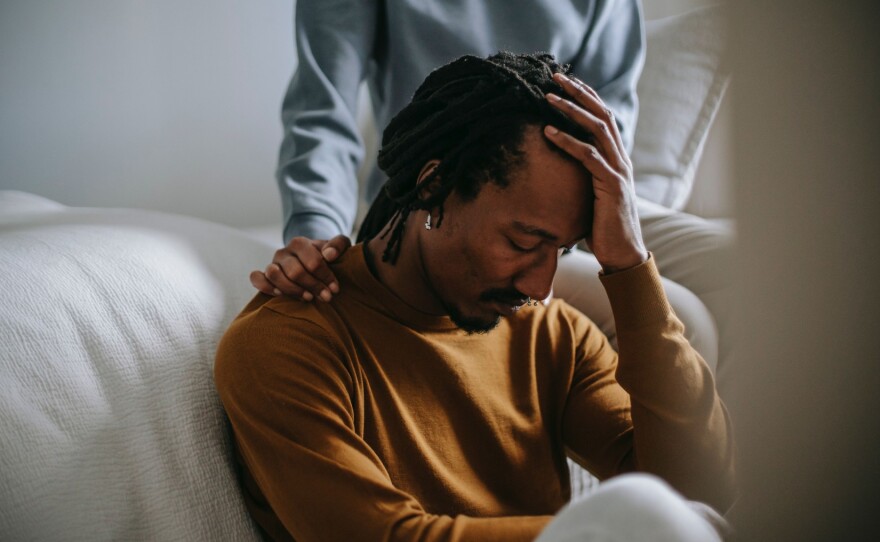The coronavirus pandemic is affecting families’ mental health, too, according to experts and the U.S. Census Bureau. But even as stress levels have increased, so too have resources to help.
The federal agency found 50,000 households are experiencing symptoms of anxiety and depression. The study shows young adults ages 18 - 29 and 30 - 44, are experiencing symptoms at a higher rate.
In the commonwealth, data from Mental Health Virginia -- a non-profit agency researching mental health in the state --shows 10,086 Virginians took one of the non-profits online mental health screenings between July and September 2020, a 500% increase over the same period a year ago. The most common screenings were for levels of depression and anxiety.
Emily Olsen, clinical supervisor at mental health services nonprofit enCircle in Richmond, says she’s witnessed the increase in young adults firsthand. Even in normal times, she says young adults experience a lot of stressful transitions -- going off to college or entering the workforce for example -- and the pandemic adds an extra layer of problems.
“Anytime we have a transition it can be challenging,” Olsen says. “Especially with the pandemic that’s created a lot of financial stress for young adults. People having to maybe move back in with mom and dad or maybe having to take on extra roommates or maybe their job switched or changed.”
Stressors are also rising in households with children according to the U.S. Census Bureau's findings. Olsen says it’s important for families to reevaluate their expectations.
“Many families are in survival mode, and there is not much opportunity for growth when one is focused on surviving,” she says. “Try taking some ‘dos’ off your ‘to-do’ list and normalize being ‘okay’ with focusing on your survival needs: safety, food, and love.”
Remote learning and school reopenings are also stressors for families. Addressing those fears openly and honestly can help relieve some of those tensions. Olsen says,“Kids are resilient, but it's important to take the time to listen to their concerns and allow them space to express their fears and concerns too.”
With the increase in stress exposure, access to mental health services has also increased. Before the pandemic, enCircle didn’t offer telehealth services. Olsen says this new access is an advantage for mental health clinicians.
“And If you would’ve asked me before I probably would have said, you know, you wouldn’t be able to make that connection,” she says. “But after doing it for nine months I see such an amazing opportunity to be able to offer those services continually because you can make those connections.”
In order to overcome the exhausting mental health effects caused by the pandemic, Olsen says it’s important to get out of the house to exercise, eat healthy and sleep regularly. But if you still need help, counseling is more accessible now than ever before and can take many forms.
“If you're still looking for something more, reach out to a counselor,” she says. “There are lots of different options -- you can reach out to your local church, you can reach out to a mentor -- it doesn’t have to be a counselor just somebody to be able to connect with.”
If you or someone you know is in crisis, call the National Suicide Prevention Lifeline at 1-800-273-8255 to speak to a certified listener. Veterans and service members can press 1. To connect to someone by text, send HELLO to 741741. It is free, available 24/7, and confidential.



